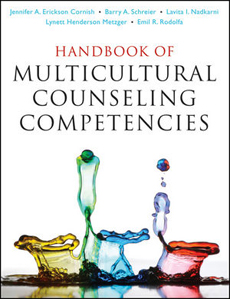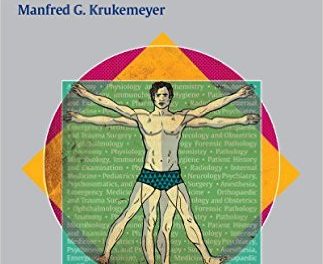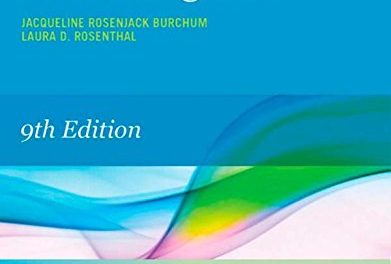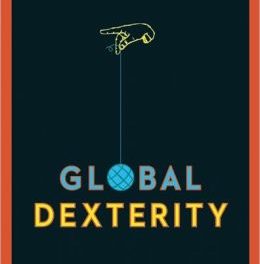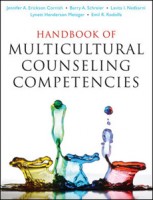 Editors: Jennifer A. Erickson Cornish, Barry A. Schreier, Lavita I. Nadkarni, Lynette Henderson Metzger, and Emil R. Rodolfa
Editors: Jennifer A. Erickson Cornish, Barry A. Schreier, Lavita I. Nadkarni, Lynette Henderson Metzger, and Emil R. Rodolfa
Publisher: Wiley – 540 pages
Book Review by: Paiso Jamakar
Over the decades since Europeans came to the shores of what was first called India by Christopher Columbus, prejudice and bias has existed in the hearts and minds of some people against others based on ethnicity and race, which later enlarged to include age, disability, language, sexual orientation and size.
With gradual, better understanding of people who act, behave, look, talk and think differently discrimination has lessened considerably. But there is no denying that it still exists in varying degrees in various parts of this vast United States.
This Handbook of Multicultural Counseling Competencies aims to foster greater insight into the differences that exist among different ethnic groups by providing “a broad, comprehensive view of multiculturalism that is inclusive and reflective,” as Derald Wing Sue describes in the Foreword.
He expresses his confidence that this book will make a major contribution to the overall effort to speed up the spread of competencies (skills) necessary to understand people of different ethnicities and deepen the understanding of their culture, including their mores and their values.
This book provides information on how to counsel people of different ethnicities whose background, language and thinking is much different than those who have grown up and lived in the United States.
The main aims of this book as laid out by Dr. Sue are:
- Broadening our understanding of multicultural identities that go beyond race /ethnicity
- Pointing out similarities and differences that distinguished many marginalized groups
- Offering an integrated definition of multicultural counseling competencies incorporates developmental levels
- Presenting “best practices” guidelines in each chapter
- Providing readers with case vignettes to illustrate real-life situations
- Presenting numerous helpful exercises that allow / force readers to explore their values, biases, and assumptions about human behavior (an important cultural competency foundation
This book is different from others on multiculturalism, Dr. Sue explains, in that it encompasses many aspects of diversity that include not just ethnicity but also other factors such as age, gender, language, race, religion, sexual orientation, size (obesity), social class, and other differences.
Among the distinctive features of this book are:
- Practical cases and examples to enhance skill development, promote critical thinking, and increase awareness
- A cross-section of diversity characteristics and best practice guidelines
- Examination of detailed, developmentally relevant competency categories
- Resources and exercises designed for practitioners at various levels of experience and expertise
- A forum for debate, discussion and growth
The 30 contributors of material to the 16 chapters of this hefty volume are specialists in their own fields, specialties and subspecialties. A comprehensive range of topics is covered in this impressive, high-quality, hardbound book.
The chapters provide information on how to understand and communicate with people who are: older, disabled, of a different ethnicity, immigrants, linguistically diverse, men, women, of mixed ancestry, of a different race, of a different sexual orientation, obese, of a different social class, of a different religious background, of an inter-sex or transgender orientation, African Americans, and Whites.
Jennifer A. Erickson Cornish, Ph.D, ABPP is an assistant professor and director of clinical training at the University of Denver’s Graduate School of Professional Psychology.
Barry A. Schreier, Ph.D. is the director of counseling and mental health services at the University of Connecticut.
Lavita I. Nadkarni, Ph.D. is the director of forensic studies at the University of Denver’s Graduate School of Professional Psychology, and is currently licensed as a clinical psychologist in New York and Colorado.
Lynette Henderson Metzger, JD, PsyD. is a clinical assistant professor at the University of Denver’s Graduate School of Psychology and maintains a small private psychotherapy practice.
Emil R. Rodolfa, Ph.D. is the director of counseling and psychological services at the University of California, Davis.

